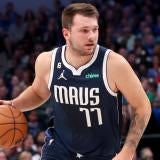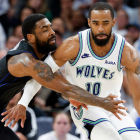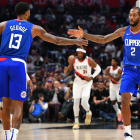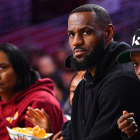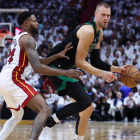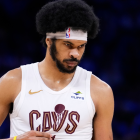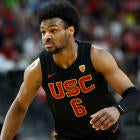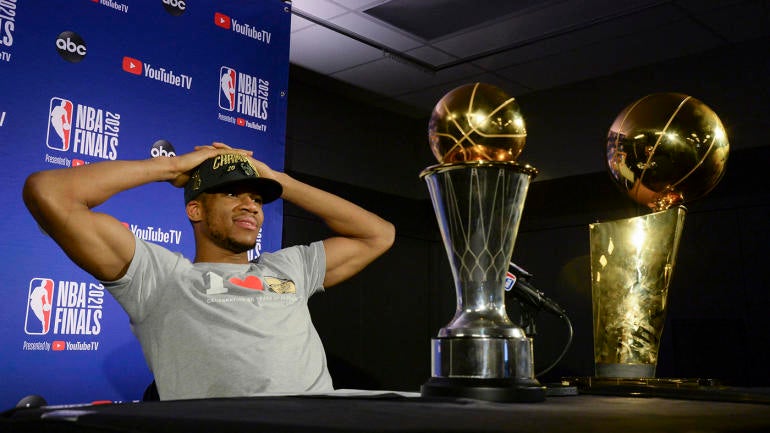
MILWAUKEE -- Late in the fourth quarter on Tuesday night, after it had become clear the Milwaukee Bucks were about to win their first NBA championship in 50 years, the jumbotron cut to a delirious Brandon Jennings dancing in his courtside seat while a smiling Dave Chappelle looked on in the background.
Beautiful, weird, pure, the moment somehow perfectly summed up just how surreal this all was. The Bucks are NBA champions, and they did it in six.
Reflecting on that scene, it's hard not to think about how the Bucks got here from where they were. For a long time you could never imagine something like that would happen. Not with this team, not in this city.
The Bucks have spent much of the past five decades, and certainly recently, as an afterthought. It wasn't long ago that they were giving tickets away just to get people in the door.
Ahead of Game 6, there was so much interest that they had to turn people away from the outdoor viewing experiences they had set up on three different sides of the stadium. Some 65,000 people -- more than 10 percent of the entire population of Milwaukee -- were packed together outside of the sold out building.
Before moving to the 17,500-seat Fiserv Forum in 2018, they played in the Bradley Center, one of the oldest, most nondescript arenas in the league, and practiced in a building they leased from the Archdiocese of Milwaukee, which also sometimes hosted youth basketball tournaments. Jokes were constantly made about the dreaded winter road trips for a random Wednesday night game were always set in Milwaukee.
Milwaukee now has the second-newest arena in the league, and regarded by fans as one of the best. Across the street stands their state-of-the-art practice facility which made its debut in 2017 to rave reviews from players. "The Cousins Center was nice -- I was there for a while -- but it's got nothing on this place right here, man," Khris Middleton said back then.
This was an NBA city, but in name only. No one wanted to be here, and it was tough to see how that would ever change. No wonder there were serious discussions about moving the franchise. If an NBA team had ever reached a dead end, it was the Bucks in the later part of the 2000s and beginning of the 2010s.
And then ... with the 15th pick in the 2013 NBA Draft, the Bucks changed the course of history when they selected a skinny kid from Athens, Greece, with a name everyone seemed to have trouble pronouncing.
It may be oversimplifying to say that Giannis Antetokounmpo saved the Bucks, but it's difficult to imagine that any of this -- the fact that they stayed and built a new arena, let alone the championship -- would have happened without him. A humble, hard working kid from Greece shows up just when a downtrodden franchise needs a spark. It sounds like a Hollywood script, but maybe that's the only way it could have happened.
Via Lee Jenkins' profile of Giannis in 2017:
The day after the draft Antetokounmpo walked out of the elevator at The Pfister Hotel in downtown Milwaukee, where former Wisconsin senator and Bucks owner Herb Kohl was coincidentally sitting in the lobby coffee shop. Antetokounmpo was self-conscious about his broken English, but Kohl's top lieutenant, JoAnne Anton, happened to be fluent in Greek. "I remember how his eyes lit up when he heard her voice," [John] Hammond recalls. "It was a small thing, but you couldn't help but think, 'Maybe this is meant to be.'"
From everything Giannis did and said, it seemed like he wholeheartedly agreed. He was the perfect player at the perfect time for both the team and the city.
"The Bucks and John Hammond chose me in the draft, got me in the NBA, kept me in the team with a role from my very first season and they are my basketball family," Giannis wrote in a blog for EuroHoops in 2015. Not only that, but already at this young age, they have enough faith in me as a leader and they are doing everything in order to develop all of my potential. From my side, I feel that I want to be playing in the Bucks. I'm not talking about my next contract. The way I feel now, I want to keep playing for the Milwaukee Bucks for the next 20 years!"
Here's more from a Sports Illustrated interview in 2017:
"Oh yeah. I want to be here," Giannis said. "There are not a lot of players that have [spent there entire career with one team]. Kobe [Bryant], Tim Duncan and Dirk [Nowitzki]. I want to be one of them. I think I can do it. But I want to make this team great. I do not want to be here just to be here. I want us to win a championship. That's my goal. As I said, I'm really stubborn, I'm really competitive. When I set goals, I achieve goals."
That's not to say this journey has been a cakewalk for Giannis. There were plenty of challenges before and after he arrived, many of which Bucks fans had become well acquainted with over the years. In 2014 they won just 15 games -- one less than they won in these playoffs -- and finished with the worst record in the league. There were coach firings, ill-advised draft picks and early postseason exits.
But even some of the problems with Giannis were more than anyone could have dreamed of beforehand. They had a back-to-back MVP winner, but there were doubts about whether he was good enough to win a title on his own. They had the best record in the league, but couldn't break through in the playoffs. They had a superstar who wanted to stay, and this time it was the outsiders and talk-show pundits seemingly trying to drive him out.
The argument for him to leave was simple. He was one of the best players in the league, but it didn't seem like he could win a title in Milwaukee. If he wanted to get some rings, going to a better, more established team made plenty of sense. Stars before him have taken that route, and stars after him will too. But Giannis doesn't operate that way.
"No. No. I just couldn't leave," Giannis said after Game 6. "There was a job that had to be finished. The bubble did not pay us justice. Give credit to the Miami Heat. They played great. But they did not pay us justice. Everybody was feeling homesick. We are a family-oriented team and we wanted to see our families."
"But coming back, I was like, this is my city. They trust me. They believe in me. They believe in us. Even when we lost, the city was still -- went outside and you know, obviously I wanted to get the job done. But that's my stubborn side. It's easy to go somewhere and go win a championship with somebody else. It's easy. I could go to a superteam and just do my part and win a championship.
"But this is the hard way to do it and this is the way to do it and we did it. We f------ did it. We did it, man."
Around the same time that Jennings was having his dance party, the Bucks went to the line for some meaningless free throws, and Giannis took advantage of the break in the action to soak everything in. Grinning from ear to ear, he strutted down to the empty end of the court by himself, pounding his chest and asking the crowd to raise the volume even higher. The fans that had waited so long for something to celebrate happily obliged.
For the first time, he was allowing himself to realize that he had achieved his dream, and he had done it by staying true to himself and the city that believed in him. That moment was as beautiful and pure as it gets. Even now, it still feels surreal. The Bucks are NBA champions.
"I think about where I was four years ago, on the streets, and where I am today, able to take care of my kids and my grandkids and their grandkids," Giannis told Lee Jenkins in 2017. "I'm not saying that in a cocky way or a disrespectful way. But it is a crazy story, isn't it?"









